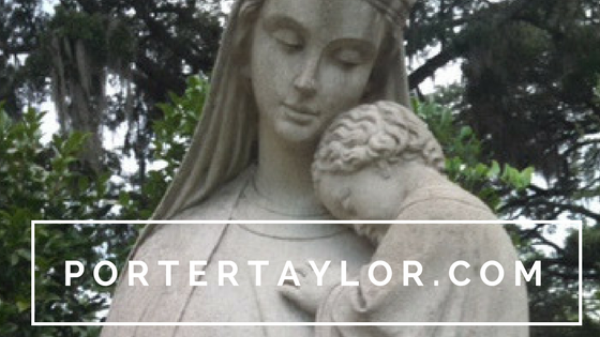Resting in the Grace of the World
When I was in seminary, I spent a summer at Erlanger Hospital in Chattanooga for my Clinical Pastoral Education. I was assigned as a chaplain in the Oncology and the Cardiac Care Wings. I talked to a lot of people with cancer and heart attacks. About four weeks in I hit a wall. A woman that I had been seeing every day for weeks died. I went to talk to Phil Summerlin, my supervisor, and said, “I feel as if I work in the House of Death,” and after a pause he said, “You know Porter, the Chattanooga Lookouts have a game this after. Why don’t you take it in?”
So, I spent the afternoon eating popcorn and watching baseball. Honestly, I quit liking baseball when I quit drinking because what’s the point of sitting in the sun all afternoon without beer? But this day I felt a great relief in watching a small world with rules and a field with boundaries and an order beyond disease and death.
There are no baseball games in February and politics aren’t the same as suffering and confronting our mortality, but I am in a similar emotional and spiritual place: an inner fatigue from the political drama and upheaval of the past weeks much less the future Supreme Court hearings. I have come to think that this turmoil isn’t a blip on the radar screen but will be with us for some time. Therefore, I am discerning a strategy to combine endurance and presence. How can I be engaged with the issues of the day but avoid cynicism or despair or a hard self-righteousness? How can I find a way not to label everyone with whom I disagree as a Neanderthal, yet also attend to our deep differences and the high stakes of some political moves? How can I be a faithful lover of God, follower of Jesus and engaged citizen for the long haul?
There are many possibilities, but the one which has come to me came from a Wendell Berry poem:
When despair grows in me
and I wake in the night at the least sound
in fear of what my life and my children's lives may be,
I go and lie down where the wood drake
rests in his beauty on the water, and the great heron feeds.
I come into the peace of wild things
who do not tax their lives with forethought
of grief. I come into the presence of still water.
And I feel above me the day-blind stars
waiting for their light. For a time
I rest in the grace of the world, and am free.
There’s a reason Jesus periodically left his work and his disciples and went away to pray. Like all of us, he needed to remember who he was and who finally was in charge of everything. He needed to “rest in the grace of the world and [be]…free” just as you and I do. There is a rhythm to living a holy life in the world—which is what I hope we are all trying to live. It’s by engagement and rest. It’s about being in the public square and in a place where you remember who you are in God. That balance is what keeps us human and sane and holy.
I, for one, have political fatigue. I haven’t withdrawn. I am not cynical, but my soul is weary and like the speaker in the poem, I am waking in the night “in fear of what my life and my children's lives may be.” So, I will find for a time my version of where the wood drake rests—which could look like the National Gallery (since we are in Alexandria, VA). After I “rest in the grace of the world” and feel as if “I am free,” I will re-engage as a responsive citizen because you can’t stay at the ball park forever. The next day you go back to work.
+Porter
